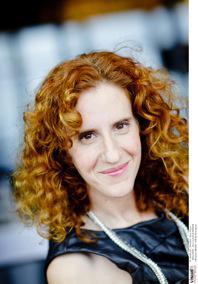
Nourishing Relationships: Young-adult books like yours seem to be gaining a much wider readership than just young adults - what is the appeal?
Gayle Forman: A book is a book is a book and a good book is a good book. It's a golden time right now for YA books, and I think the popularity of novels like The Hunger Games or Twilight have showed moms the appeal of these books not just for their daughters but for themselves. There's something about the teenage years. They're a time of firsts—first love, first heartbreak, first time leaving home, first time making big decisions—which is why they're such fertile ground for authors but also why the books resonate for both teenagers and for anyone who has been a teenager.
NR: What kind of messages can mothers and daughters glean from "If I Stay" and "Where She Went?"
GF: I think readers of different ages take away different things from the books. With "If I Stay," young readers often email me to tell me that they appreciate their lives anew after finishing the book. That they've gone to give their parents a hug, or that they've stopped feeling sorry for themselves because they know now that life is so fleeting. Older readers, particularly those who have endured loss, I think, really connect with Mia's sense of loss of her family and find some catharsis there. Similarly, in "Where She Went," I think younger readers are swept up in Adam's agony over losing Mia, in his anger, in the hope of a second chance. Older readers connect with that, too but again, the themes of loss, of surviving loss, of what it means to grieve—if you've been through something like that, you might read the book on a different level.
NR: "If I Stay" has become a popular mother-daughter book club pick. Why is that?
GF: I think it's for some of the reasons I mentioned above, that there is a takeaway for different generations. Also, unlike a lot of YA books, the parents (and grandparents) in "If I Stay" are really cool, so I think it's refreshing for adults to see a positive depiction of parents in books about younger people. But the major themes—memory, choice, music, living, dying, loving—are ones that all ages can talk about. I think as our daughters grow older, it can be harder to find common ground and sometimes books can provide an opening.
NR: How has raising your two children changed the way you write books?
GF: It's a funny question because I didn't quite realize how thoroughly the girls impacted my writing until I was deep into it. For one, I might never have started writing novels had I not had my first daughter. When she was a baby, I knew I didn't want to travel anymore as a journalist. That was how I backed into writing my first novel, "Sisters in Sanity." But it was really with "If I Stay" that I synthesized so many of my feelings about parenthood, about the sacrifices you make for your children without ever giving it a second thought. Though the book focuses on 17-year-old Mia, the story is also very much about her parents. Former punk rockers, they slowly evolve into 1950s-esque seeming Cleaver family types and the nature of this evolution, the reason her father in particular changes, is a big theme of the book. I didn't realize until after I finished that this whole section was really about sacrifice for your children and I never would've written this, or felt this, before having children.
NR: Do you have no-go zones?
GF: No. When I was writing "If I Stay," at one point I wondered if it was too heavy or too philosophical for YA but I didn't change anything. If my characters curse in my head, they curse on the page. I realize that puts off some readers but I grew up in home where we cursed like sailors but also did volunteer work, so cursing and morality were never remotely related. But I do think very much about the morals I'm putting on the page, how I would feel as a parent if my girls at 17 did the things that the girls I'm writing about are doing. Would I be okay with my 17-year-old in an intimate relationship with a boy she was in love with and monogamous with? Would I be okay with her not going to the college of her dreams to be close to the boy she loved? These are the questions I ask myself and they guide the decisions my characters make.
Thanks Gayle, for giving us insight into your work and the teen psyche. Now, readers, you have a chance to share your thoughts and ask Gaye questions. Just click on 'comments' below this post and follow the prompts. You can even sign in as 'anonymous,' it's as easy as that. And if you want to experience her commitment to teenagers and sense of humor firsthand, spend some time on Gayle's blog.

